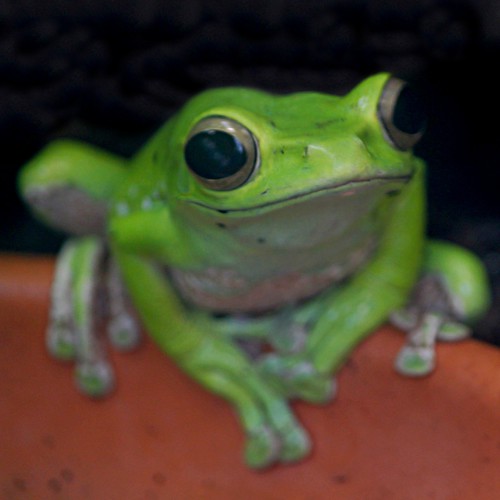Frog image by @Goug8888, used under Creative Commons license Attribution-NonCommercial-ShareAlike 2.0 Generic.
Frog is a static web site generator written in Racket.
You write content in Markdown or Scribble. You generate files. To deploy, you push them to a GitHub Pages repo (or copy them to Amazon S3, or whatever).
Posts get a variety of automatic blog features.
You can also create non-post pages.
Pygments handles syntax highlighting for code blocks.
The generated site uses Bootstrap, which is responsive, automatically adapting to various screen sizes.
TL;DR: This project is in low-maintenance mode.
I have enjoyed working on Frog for many years. In the beginning, it was intended to be a "just-works", "any color you want, so long as it's black" simple application.
I envisioned it as an application that happened to be written in
Racket -- which some people might use even if they weren't Racket
programmers. That didn't happen. At the same time, it evolved to be
more configurable. And finally to use a #lang for configuration. At
which point it felt more like what is really was: A tool for Racket
programmers to do a static blog.
Eventually I felt even that was too complicated, and my own blog should simply be a Makefile driving a few pieces of code inherited from Frog. In other words, I no longer use Frog for my own blog.
As a result, although you're welcome to open issues about new features or off-label uses, please don't expect much. I expect I will still try to fix bugs, at least as/when I have time and I believe a fix would not result in more and/or worse bugs.
As I write this in July 2019, I think the situation has already been clear from the repo activity for a long time. Even so, I want to be super up-front about where the project is headed, or not. That way people can make an informed choice how to spend their limited time and energy.
Finally a big thank you to people who contributed things over the years.





